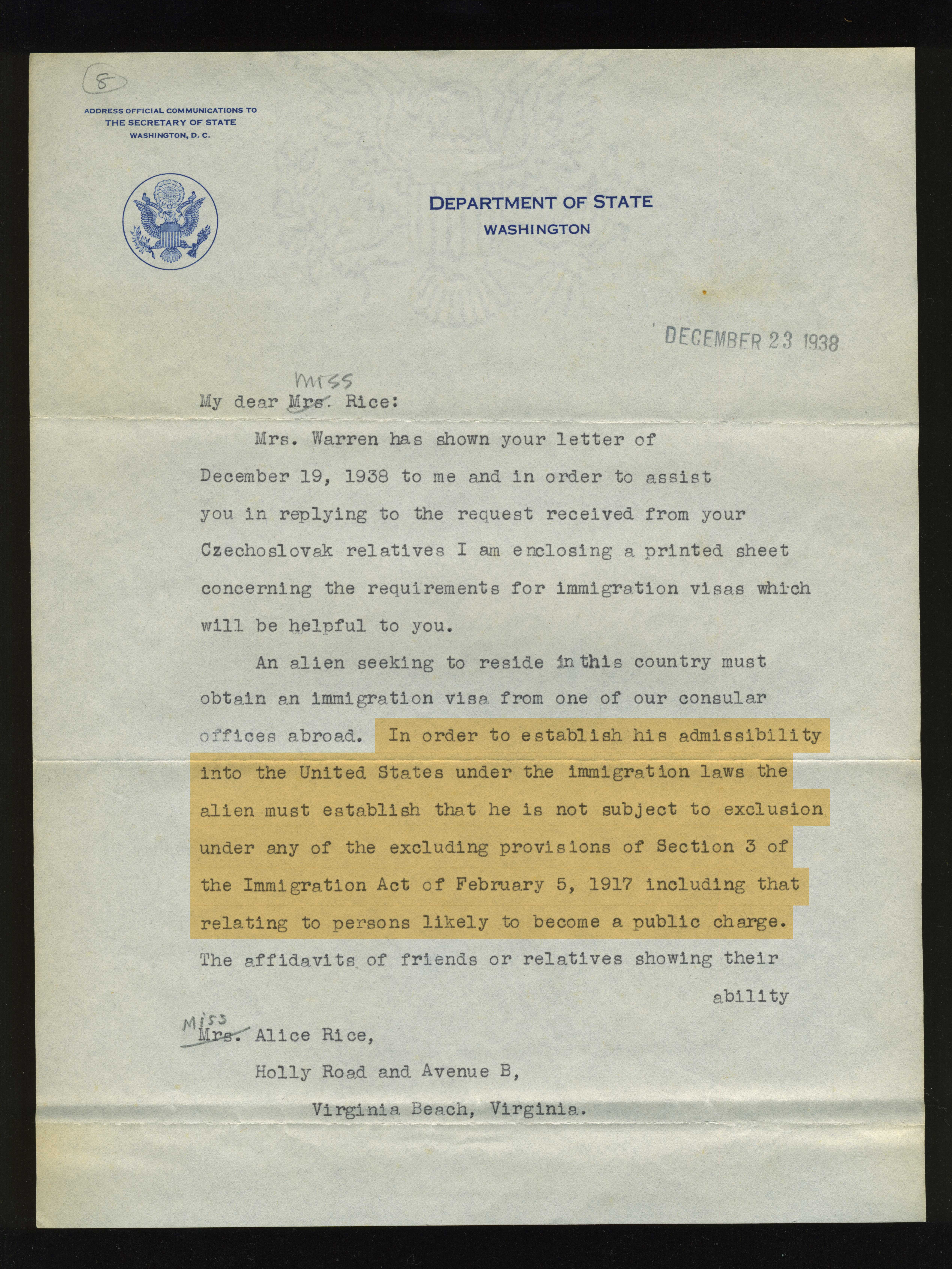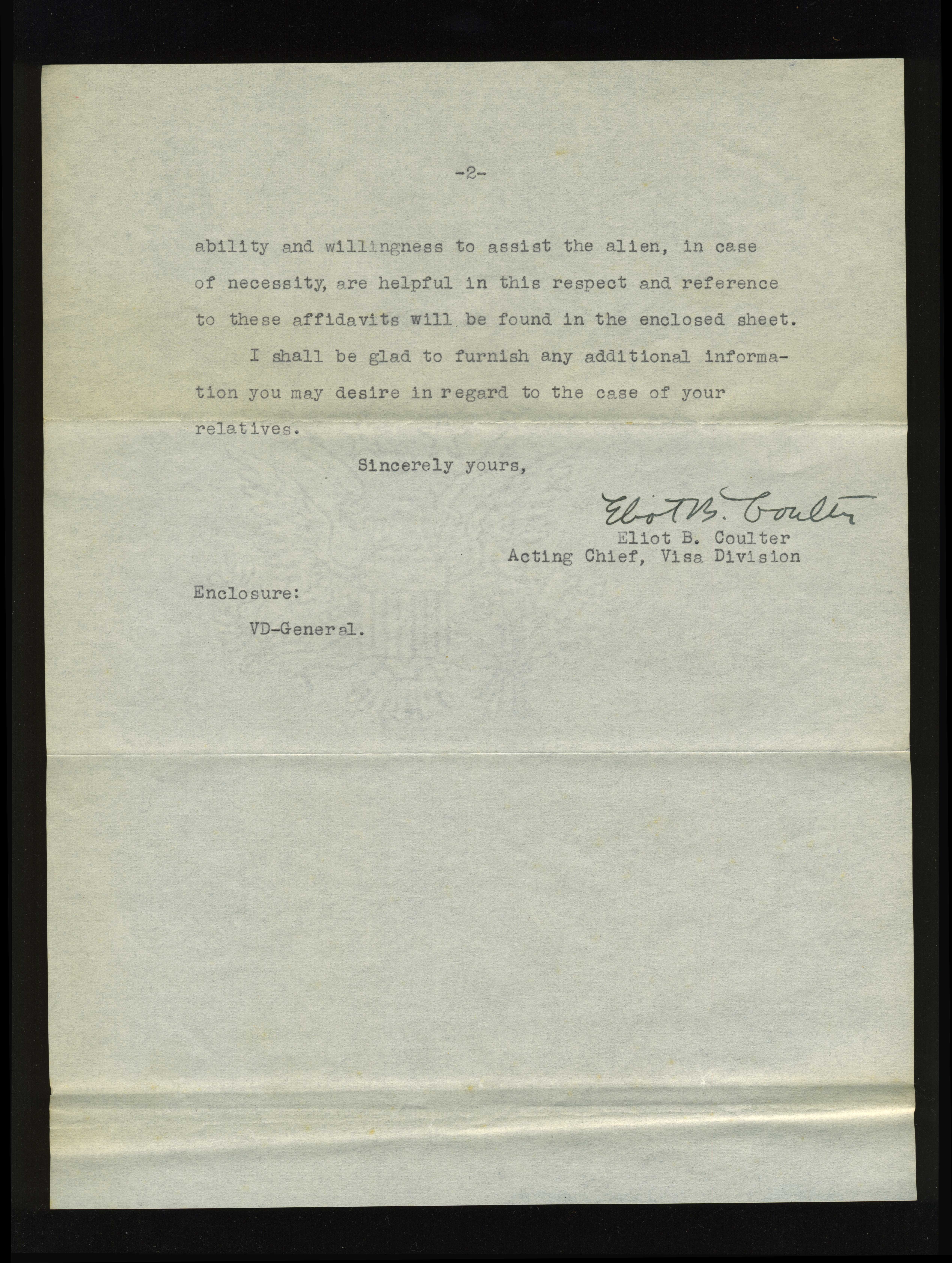Bureaucracy without empathy
The effects of a 1917 law in the year 1938



External links are disabled on the kiosk. Please visit archive links from desktop or mobile devices.






















BACK TO TIMELINE
Sign up for weekly updates:
Success
Thank you for signing up.
Error
You're already a list member.
Error
An error occurred, please try again later.










































Sign up for weekly updates:
Success
Thank you for signing up.
Error
You're already a list member.
Error
An error occurred, please try again later.
The Leo Baeck Institute – New York | Berlin presents the year 1938 through the eyes of Jews, whose personal documents detail their experiences and the hardships they suffered as well as the growing tensions in Europe and diminishing hope for Jews in Germany and Austria.

Curated by Leo Baeck Institute – New York | Berlin
© 2018 Leo Baeck Institute
Website and exhibition design by C&G Partners



“In order to establish his admissibility into the United States under the immigration laws the alien must establish that he is not subject to exclusion under any of the excluding provisions of Section 3 of the Immigration Act of February 5, 1917 including that relating to persons likely to become a public charge.”
Washington D.C./Virginia Beach, Virginia
America was struggling with economic difficulties, and an unfavorable attitude towards “aliens” prevailed in Congress. Among much of the populace, the idea of admitting large numbers of Jewish immigrants was not popular, and President Roosevelt was not inclined to relax America’s immigration restrictions. Thus, when Alice Rice of Virginia Beach tried to facilitate the immigration of her Czech relatives, she received the standard answer from the acting chief of the Foreign Office’s visa division, Eliot B. Coulter. He emphasized the importance of proving that the applicants were not likely to become “public charges” and pointed to the provisions of the 1917 Immigration Act, which, in addition to economic prerequisites, made immigration dependent on a host of conditions grounded in considerations of a political, racial, moral and health-related nature, as well as stating that a person 16 or more years of age was eligible for immigration only if literate. Despite the valiant efforts of Frances Perkins, Secretary of Labor, whose department was in charge of immigration and naturalization issues at the time, US policy was not revised to accommodate the needs created by the wave of refugees coming out of Nazi Germany. Interestingly, one of the justifications for this was that the German quota was actually never filled – without mentioning, of course, that this was a result of the “public charge” provision, which made it impossible for many German Jews, who had been systematically driven into poverty by the Nazis, to successfully apply for visas.
SOURCE
Institution:
Leo Baeck Institute – New York | Berlin 
Collection:
Klein-Cohn Family Collection, AR 6217 
Original:
Box 1, folder 3
Source available in English



Curated by Leo Baeck Institute – New York | Berlin © 2018 Leo Baeck Institute
Website and exhibition design by C&G Partners